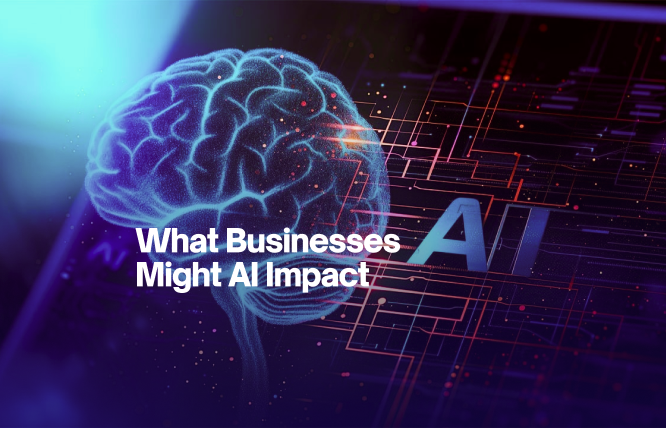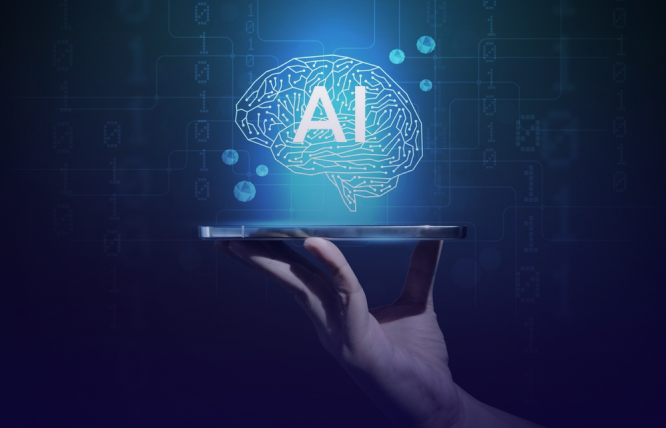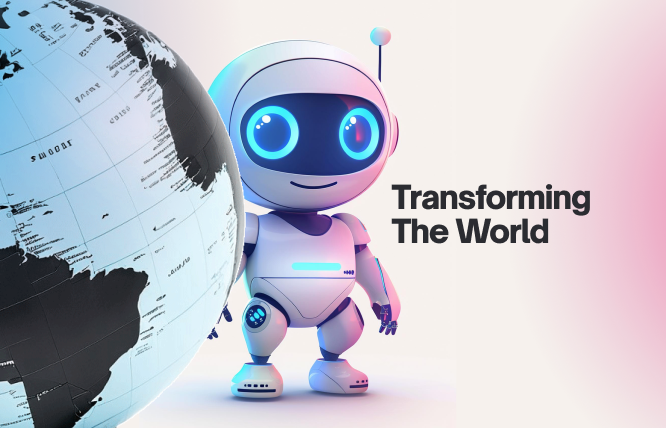Introduction
AI has made a massive impact on businesses in multiple industries over the years, and as AI models improve, the next decade is going to completely revolutionise the way businesses operate. This article will discuss the top 8 industries that will see an impact thanks to AI.
Artificial intelligence is making a substantial impact on various industries. AI is expected to see a 37.3% growth from 2023 to 2030. As AI becomes smarter and enables businesses to automate their processes, industries all over the world will reap the benefits of artificial intelligence.
In this article, we will discuss the impact of AI on businesses over the next decade. We will talk about the impact of this technology on the top 8 industries that have seen the most drastic change over the years.
The Impact of AI Across Various Industries
Artificial Intelligence is transforming industries by automating processes, providing data-driven insights, and improving user experiences.
Here’s how AI is benefitting different sectors:
1. Automotive
In the automotive industry, AI is driving innovation, particularly in autonomous vehicles. AI systems process data from sensors, cameras, and radar to enable self-driving cars to navigate roads safely. Companies like Tesla and Waymo are leveraging AI for autonomous driving, reducing human error and improving road safety. AI also enhances manufacturing processes by improving supply chain management and enabling predictive maintenance of vehicles.
In addition, AI-powered personalisation features in vehicles, such as voice recognition and in-car assistants, offer a more engaging and customised driving experience for users.
2. Education
AI is revolutionising education by personalising learning experiences. AI-driven platforms analyse student data to adapt content and learning pace to individual needs, improving engagement and learning outcomes. Tools like AI tutors and virtual assistants provide round-the-clock support, making education more accessible and flexible.
In classrooms, AI helps educators with administrative tasks such as grading and student assessment, allowing them to focus more on teaching. AI also facilitates remote learning through interactive digital platforms, expanding educational opportunities globally.
3. Media & Entertainment
AI is transforming the media and entertainment industry by enabling personalised content recommendations. Streaming platforms like Netflix and Spotify use AI algorithms to analyse user preferences and suggest shows, music, or films tailored to individual tastes, enhancing user engagement.
AI is also used in content creation, such as generating video summaries, automating news reports, and creating digital effects in movies. In the gaming industry, AI powers non-player characters (NPCs) and adaptive gameplay, making games more immersive and dynamic.
4. Finance & Banking
AI is streamlining operations and improving decision-making in the finance and banking sector. AI-powered algorithms are used for fraud detection and analysing vast amounts of transaction data to identify suspicious activities. In investment banking, AI enhances algorithmic trading by making fast, data-driven decisions that optimise returns.
AI chatbots are widely adopted in customer service, providing instant assistance for queries related to transactions, account management, and more. AI also powers robo-advisors, offering personalised investment advice, and portfolio management at lower costs.
5. Healthcare
AI is making significant contributions to the healthcare industry, particularly in diagnosis and treatment. AI algorithms can analyse medical images to detect diseases like cancer, often more accurately and faster than human doctors. AI-powered tools help doctors predict patient outcomes, enabling personalised treatment plans.
In drug discovery, AI speeds up the identification of potential compounds and reduces research costs. Virtual health assistants and AI chatbots also offer patients support in managing chronic conditions and tracking medication adherence, improving overall healthcare outcomes.
6. On-Demand Services
In the on-demand economy, AI optimises service delivery by improving logistics and customer experiences. Ride-hailing apps like Uber use AI to predict demand and allocate drivers efficiently, while food delivery services use AI algorithms to optimise delivery routes and ensure timely deliveries.
AI is also integrated into customer support, with chatbots and virtual assistants handling queries and bookings, making the process faster and more seamless for users.
7. Real Estate
AI is transforming the real estate industry by enhancing property searches, personalising recommendations, and streamlining transactions. AI-powered platforms analyse user preferences and offer property suggestions based on location, budget, and other criteria, improving the home-buying experience.
In property management, AI is used for predictive maintenance, analysing data from smart devices to detect potential issues before they become costly repairs. AI also assists in property valuation by analysing market trends and property data, making the buying and selling process more transparent.
8. Retail
In retail, AI is driving personalisation and improving customer service. AI-powered recommendation engines analyse customer behaviour and purchase history to suggest products, increasing conversion rates. In stores, AI enhances the shopping experience with tools like virtual fitting rooms and chatbots for customer assistance.
AI also optimises supply chain management by predicting demand, reducing overstock and stockouts, and improving delivery efficiency. Retailers are using AI to automate inventory management, pricing strategies, and marketing campaigns, making operations more efficient and responsive to customer needs.
Conclusion
AI is changing the way businesses are moving towards digital transformation. If you want to move towards digital transformation with the help of artificial intelligence, our experts at FuturByte have you covered.
Our experts have experience in helping multiple industries automate their processes and help them make operations more efficient. Contact us today for a free consultation.
Frequently Asked Questions
Yes, ethical concerns such as data privacy, bias in decision-making, and job displacement arise with AI adoption. Businesses must ensure that AI systems are transparent, unbiased, and comply with data protection regulations. Proper governance, ethical AI development, and retraining employees can help mitigate these concerns.
Yes, AI can significantly reduce operational costs by automating repetitive tasks, improving decision-making, and optimising processes. In industries like manufacturing, AI-powered robots perform tasks more efficiently, reducing labour costs. In customer service, AI-driven chatbots handle queries, allowing human resources to focus on more complex issues, leading to cost savings.
AI enhances customer service by providing faster, more personalised support through virtual assistants and chatbots. These AI tools are available 24/7, can handle multiple customer queries simultaneously, and provide instant responses. They also analyse customer data to offer tailored recommendations, improving overall customer satisfaction and loyalty.
Yes, AI is becoming increasingly accessible to SMEs, thanks to cloud-based AI solutions and affordable AI tools. AI-driven platforms like CRM systems, marketing automation tools, and chatbots can be easily integrated into small businesses, helping them enhance operations, improve customer experiences, and gain a competitive edge.
Have questions or feedback?
Get in touch with us and we‘l get back to you and help as soon as we can!




